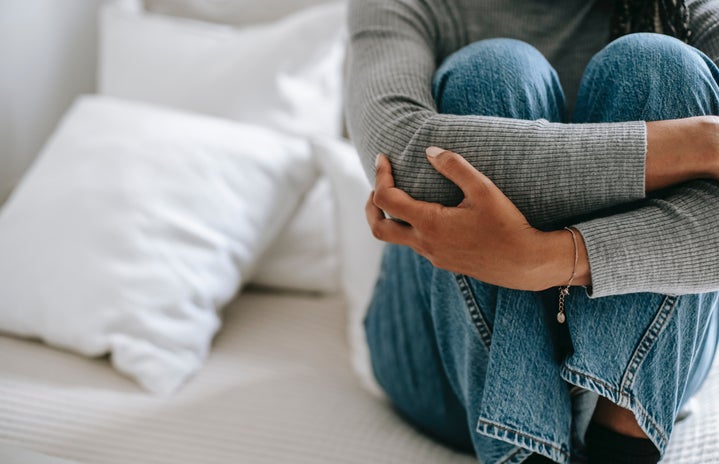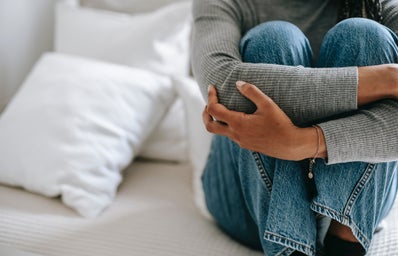While mindlessly scrolling through Facebook, I stumbled upon a PopSugar article that piqued my interest. In her article I Didn’t Know I Was Sexually Assaulted Until 5 Years After It Happened to Me, Kelly Douglas describes how she had always grown up “believing that sexual assault was always violent and overt.” This one sentence sent my mind racing, as I knew that I had bought into the same narrative for years.
I grew up hearing stories about strangers who waited in dark alleyways. I was told to never walk alone at night, to always stay where people could see me. When I went out, I was told to always watch my drink and to never accept a drink from a stranger. But the truth is that most of these “tips” could not prevent so many of us from getting sexually assaulted, and no one really publicly addresses this.
If you were to switch on the news or log onto Twitter, what news would you see involving sexual assault? You would most likely see some of the most extreme and borderline grotesque stories, mostly cases of penetrative rape. This is because the media uses the story with the most shock factor in order to attract more viewers. Of course, these stories deserve to be put in the spotlight, but this concentration of exceptionally violent assaults takes the lead in conversations about sexual assault — leaving many survivors questioning whether or not their story “counts.”

According to the World Health Organisation (WHO), sexual violence (or assault) is “any sexual act, attempt to obtain a sexual act, unwanted sexual comments or advances, or acts to traffic, or otherwise directed, against a person’s sexuality using coercion, by any person regardless of their relationship to the victim, in any setting, including but not limited to home and work.”
The truth is that rape is a form of sexual violence. It’s not the definition of sexual assault, and nowhere in WHO’s definition does it insinuate that only the victims who are left with visible scars and bruising are the victims of “valid” sexual assault — the only reason most survivors feel this way is because we are not talking enough about what sexual assault actually means.
It’s noteworthy that all 13 participants of my survey said that they believe sexual assault doesn’t always have to be violent, and yet nearly half of them didn’t feel that they were allowed to publicly identify as survivors. I couldn’t help but wonder if the #MeToo movement and our discussions around sexual assault haven’t been as inclusive and open as a lot of survivors need it to be? In reality, if the public perception of sexual assault were to shift away from the extreme and violent acts to include the frequent “minor” instances of sexual assault, the majority of society would probably identify as survivors.
A more expansive and in-depth understanding of sexual assault needs to be circulated because the truth is that a lot of normalized behavior or behavior that so many of us have become desensitized to, are acts of sexual assault. Any sexual or sexually suggestive act that takes place against or without a person’s consent is sexual assault. Yes, this means that kissing someone without their permission is assault, and so is grinding on someone in a club without their consent. It doesn’t have to be a stranger in a dark alleyway: it could be a friend, a significant other, or even a family member. Any act of sexual violence is violent, but what society’s interpretation of the word “violent” has overlooked, is that “violence” is emotional and mental violence, too. The experience of feeling violated is extremely violent for us as survivors, even if the act doesn’t appear to be overtly violent from an outside perspective.
These instances of sexual assault are not uncommon, but the lack of public acknowledgment that these assaults do occur is why survivors of “minor” assaults feel as if they are alone and cannot speak about it. But the truth is that there are so many people who have gone through similar trauma as you. I won’t say the same trauma because every case is different no matter how similar it may be, but if you really do feel as if your story isn’t important and no one could possibly understand, maybe you’ll find comfort in the stories of these survivors:
“He took my virginity away before I wanted to lose it and pressured me into sex. I told him I wasn’t ready, and what it meant to me, but he kept pushing and pushing. I felt like I couldn’t say no. I blamed it on myself for years and kept going back to find meaning in the empty sex, but one day I thought about it and I was like, ‘Oh my gosh! He forced me to do something I didn’t want to do, and intimidated me into silence.’” – Anonymous Survivor
“I only came to realize that what happened was wrong months later, and there were many times that I went back afterward that were 100% consensual so I always felt it was normal. He was also my first so I didn’t know what meaningful sex was supposed to be like. In hindsight, I should have known that the way I felt the next day – ashamed, dirty, and sad – was not normal.” – Anonymous Survivor
“When I realized I had been sexually assaulted, my stomach dropped. I couldn’t believe that it had taken me so long to realize that assault isn’t necessarily rape and that my nonviolent sexual assault was assault. Once I allowed myself to feel angry at my perpetrator, my experience felt far more valid.” – Anonymous Survivor
“He was really emotionally abusive to me, and he also pressured and coerced me into a lot of sexual things I didn’t want to do. I didn’t know until last year when I read an article about intimate partner violence and realized that him coercing me technically made it all sexual assault. I always knew something was off, but I never knew it was assault. I just thought it was normal after a while, but I see now that it is not.” – Anonymous Survivor
To the survivors who don’t know if their stories count, to the people who don’t know if they’re “allowed” to say #MeToo — I need you to know that you aren’t alone. Unfortunately, the debate around sexual assault has probably left you feeling like you’re alone, but you aren’t. Just because your experience didn’t reflect what is seen in the news or portrayed in movies, does not mean that your story doesn’t matter. You are a survivor and no one can steal your truth from you. You know what happened to you, you don’t need anyone else to “validate” your trauma and give you this unwanted badge to bear for the rest of your life. The only person who needs to give you permission to say #MeToo or call yourself a survivor is you. And I hope you never forget that.
I hope you never forget that no one can take that power away from you.
If you or someone you know is a survivor of sexual assault, you can contact the National Rape Crisis Trust’s 24-hour helpline for free and confidential counseling.
Follow Dakota on Instagram.


